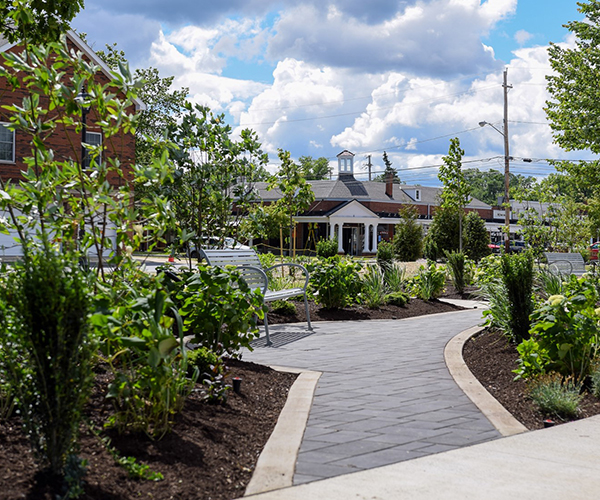Savings bonds
Stashing away that 3 1/2 to 5 percent minimum down payment on a first home can seem like an impossible task in a world of stagnant salaries, increasing prices and unexpected expenses. But Michael Kaim, a real estate agent with Berkshire Hathaway based in Mentor, insists that it can be done — and with less pain and sacrifice than you might think. He and his in-house loan officer, Kurt Kolar of Willowick-based Metro Mortgage, tell you how.
Track your spending. Kolar explains that this exercise illustrates how much money you're dropping on discretionary purchases such as morning lattes and out-of-the-office lunches, which quickly add up. "A $10 lunch turns into a $2 lunch, because you're making a sandwich at home and bringing it in [to work]," he says. "You're really not going to miss that much. And it'd be amazing, how much you would be able to save."
Reduce necessary expenses. Think about going beyond clipping coupons and stocking up on staples during sales. If you have cable and Internet, drop premium channels or switch to a slower bandwidth speed. "Buy a car with a lower car payment," Kaim says. "Shop insurance. Little things like that will add up."
Talk with a lender. Kaim recommends scheduling a meeting before you even have a down payment in hand to see where you stand. "Most loan officers will sit down with you and go through what it's going to take to get you to that pre-approval status, where you can start shopping and bidding on a home — paying off credit cards, getting any missed pays off of your credit [report]." Get your financial house in order while you're saving for a brick-and-mortar one.
sell by
Forget about racing around your home, staging elaborate tablescapes or floral arrangements or baking fresh cookies so the smell wafts through the house. Lou Barbee, a real estate agent with Remax Real Estate Group, says give potential buyers what they request most: "something light, bright and open."
Clean, clean, clean. Clear surfaces, remove furnishings and other items that impede easy movement from room to room. Then carefully detail every square foot, just like a pro would detail a car. "[Potential buyers] are going to assume that if you didn't take care of the cleaning that you probably didn't clean the gutters, that you probably didn't maintain the plumbing," she says.
Lighten up. Make sure light bulbs in fixtures and lamps are the highest wattage they'll safely accommodate. "Forget the compact fluorescent bulbs, they give that horrible pallor to everything," Barbee says.
Make a good first impression. Trim and edge the lawn. Paint the exterior, front door and foyer if they need it. And add some color along the front walk and entrance. "You don't have to plant things," Barbee says. "Try potted plants."
TOOL TIME
There are flips and then there are flops when it comes to buying a fixer-upper. Invest in a solid foundation — and avoid a tumble into a bottomless money pit — with these tips from Richfield Village real estate agent Yvonne Highley of Berkshire Hathaway Home Services Professional Realty.
Sheriff's sales. The bottom-dollar prices these auctions offer come with the catch of buying blind. Tours aren't offered before purchase. "You don't know the condition of the house, the condo or whatever you're buying until you actually get in and start ripping it apart," Highley says.
Match your home to your skills. Unless you work in the remodeling business, it's best to leave big projects to the pros. Less-than-perfect work could mean failing a home inspection, or worse, down the road. "Let's say you sell the house and five years later, the [buyers] have a fire," she says. "They do an investigation, and they find out that it wasn't wired correctly. There may be liability."
Do the math. Is a $100,000 home a steal? "If it needs $200,000 worth of work, all of a sudden you have a $300,000 house in a $200,000 neighborhood," Highley says. "That's not a good investment."



